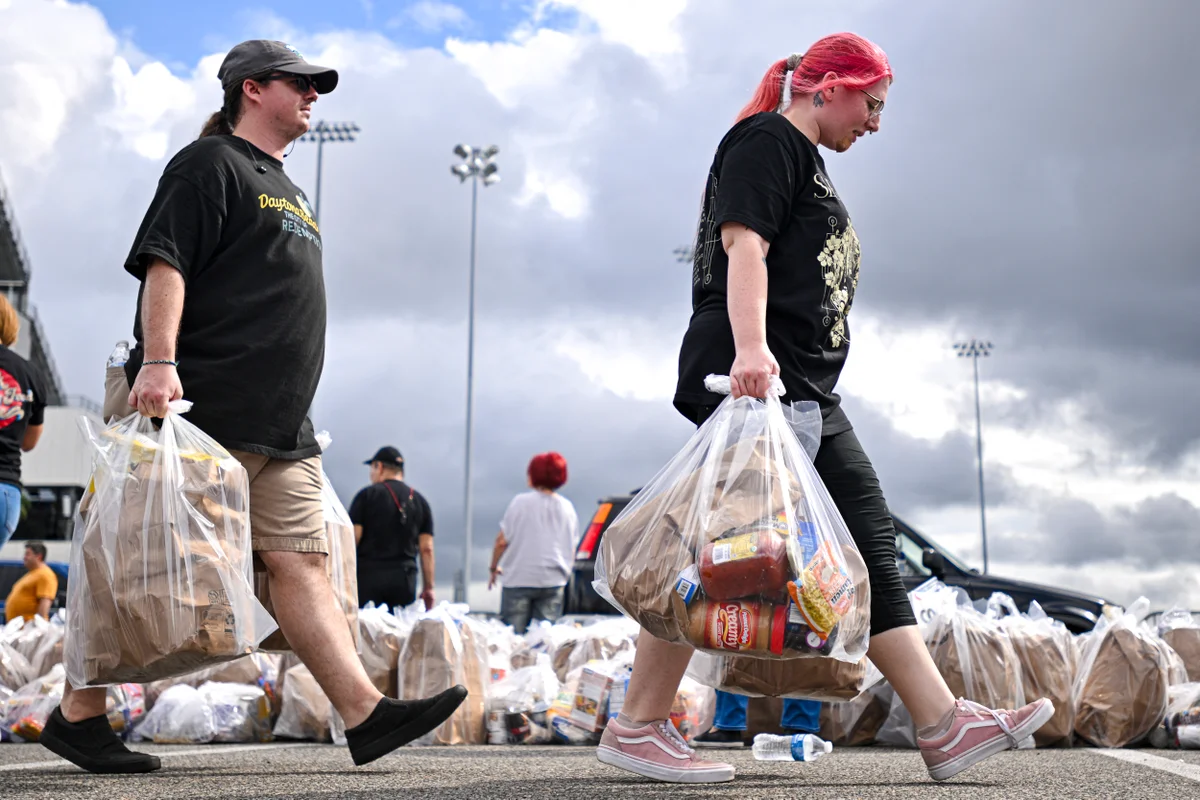Copyright independent

Donald Trump’s administration is once again calling on the Supreme Court to deny full funding for the nation’s largest anti-hunger program, which faces a fast-moving legal battle over the fate of vital food assistance during the government shutdown. For the second time within four days, the administration called on the nation’s high court Monday to continue blocking lower court orders that required the government to pay full food assistance for the more than 41 million Americans who are enrolled in the Supplemental Nutrition Assistance Program (SNAP). The legal back-and-forth and conflicting guidance from the government has left families in limbo, unsure when or how they can afford groceries without critical SNAP benefits. Monday’s request from the Trump administration came hours after a federal appeals court once again refused to stop a judge’s order requiring the government to fully fund the program, issuing a warning late Sunday that “tens of millions” will go hungry without food stamps, which would trigger a “cascade” of health and financial harms that imperil families and communities across the country. The latest moves came as Congress inches closer to a temporary funding deal that will end the government shutdown and keep money flowing into SNAP. If the government reopens, the administration would abandon its emergency request to the Supreme Court, effectively ending the weeks-long legal battles from Democratic-led states and cities, anti-hunger advocates and nonprofit groups demanding the government maintain its obligations to SNAP after refusing to keep the lifeline afloat during the shutdown. But until then, the government is asking for justices to intervene. Last week, Rhode Island District Judge John McConnell ordered the government to fully fund SNAP after finding that it failed to address any administrative issues that prevented states from quickly sending out at least partial benefits to keep people from going hungry after cutting off funding November 1. A federal appeals court upheld the decision, but the Supreme Court granted Trump’s request to temporarily freeze McConnell’s order, igniting a swift round of arguments over the future of the program. The administration simultaneously told states that the Department of Agriculture was “working towards implementing November 2025 full benefit issuances in compliance” with the lower court order. States were already beginning to see federal funding start to flow back into SNAP, but the USDA then ordered states to “undo” any steps taken to ensure those payments were going to beneficiaries — adding more confusion that has left families scrambling. SNAP funds, which are distributed by the federal government to states each month, support roughly one in eight families, who receive an average of $188 per person per month, or about $6 per day. Those funds are administered on prepaid cards that can be used to pay for groceries. Food pantries across the country are warning that they are not prepared to support the millions of families that rely on government assistance. “For low-income Americans, SNAP is a vital bulwark against hunger and food insecurity. Access to food is, of course, a basic human need,” appeals court judges wrote late Sunday. “Without SNAP, tens of millions would go hungry — the first among a cascade of other health and financial harms that would befall those forced to go without enough food, particularly in the months leading up to winter,” they added. In a separate case in Massachusetts, Democratic officials from 25 states are demanding a court order to restart SNAP funds — and challenging USDA’s attempts to clawback benefits. “Americans shouldn’t have to wait one day more,” California Attorney General Rob Bonta told reporters Monday. “Every American should be outraged by the billionaire sitting in the White House would go to such extreme lengths and spend this much energy to prevent hungry Americans from getting food,” he said. Before federal judges intervened, the administration intended to freeze funding for the program entirely during the government shutdown, claiming that it did not have legal authority to tap into billions of dollars in emergency funds. On a notice on its website last month, USDA claimed that the “well has run dry” and that “there will be no benefits issued November 1.” The administration then agreed to tap into $4.65 billion in contingency funds to cover roughly 65 percent of benefits. The USDA said those partial payments were sent to states last week, but officials wrote in court documents that it would “take anywhere from a few weeks to up to several months” for those recipients to start seeing those benefits. In a ruling Thursday, Judge McConnell said the administration failed to “expeditiously resolve” any clerical issues that could delay those payments. As a result, “people will go hungry, food pantries will be overburdened and needless suffering will occur,” with SNAP funding lapsing for the first time in the nation’s history, he said during a virtual court hearing Thursday. “People have gone without for too long. Not making payments to them for even another day is simply unacceptable,” McConnell said. “This should never happen in America.”



